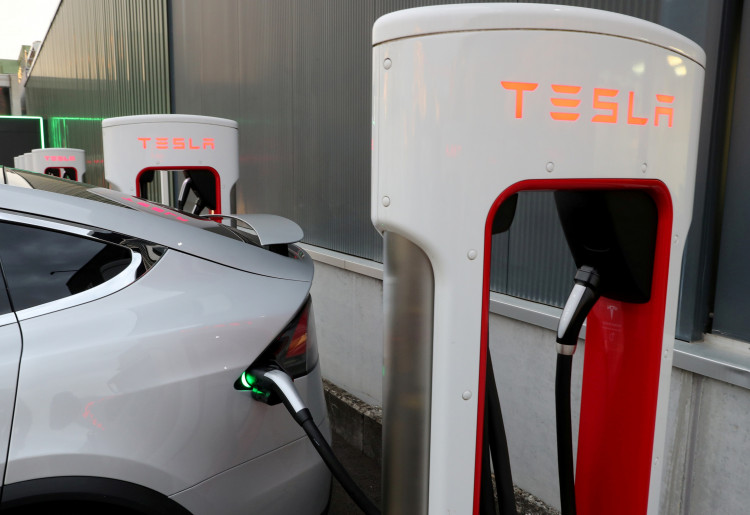As temperatures plummet in the Chicago area due to an Arctic air mass, Tesla owners are facing a significant hurdle: difficulties in charging their electric vehicles (EVs). Amid the freezing conditions, several Tesla motorists reported being stranded at charging stations with dead batteries, while others experienced excessively long charging times.
Brandon Welbourne, a Tesla owner from Evergreen Park, Chicago, expressed his frustration to local news station KABC. He highlighted the extended charging duration caused by the cold batteries, mentioning that what should have been a 45-minute charge was taking up to two hours. Furthermore, Welbourne observed numerous cars being towed away after battery depletion, as the vehicles consumed substantial energy to maintain warmth while drivers waited.
Another Tesla owner, Tyler Beard from Oak Brook, Illinois, shared a similar ordeal with Fox32. He recounted his car's battery remaining uncharged after several hours, describing the situation as "crazy" and "a disaster." Chalis Mizelle, who also faced charging issues, ended up abandoning her car for alternative transportation.
Tesla's challenge in cold weather is not unique to this incident. The electric automaker advises in its owner's manual that EV batteries require preconditioning before driving in cold weather. This process involves driving to a charging location approximately 30-45 minutes away or preheating the battery to ensure efficient charging. The company also acknowledges that cold weather can lead to increased energy consumption due to the additional power required for driving, cabin, and battery heating.
The difficulties faced by Tesla drivers in Chicago are symptomatic of broader challenges confronting the EV industry in extreme weather conditions. A 2019 study by AAA found that cold temperatures can temporarily reduce EV range by more than 40% when interior heaters are used. The study noted a 41% drop in EV range at 20-degree temperatures with the heater on, compared to a 12% decrease when the heater was off.
Eddie Zipperstein, the owner of Richards Body Shop, a certified Tesla service center, offered some tips for Tesla owners to mitigate these issues. He suggested parking in a garage to keep the car warm and using the vehicle's navigation system to precondition the battery for faster charging. Zipperstein also recommended charging the battery before it falls below 30%.
These charging challenges in freezing conditions have raised concerns among Tesla owners and EV enthusiasts about the reliability of electric vehicles in harsh winter climates. While Tesla has made significant strides in EV technology, the recent incidents in Chicago highlight the need for further innovation and improvement, particularly in battery performance during extreme cold. As the industry continues to evolve, addressing these weather-related challenges will be crucial for the wider adoption and acceptance of electric vehicles.






